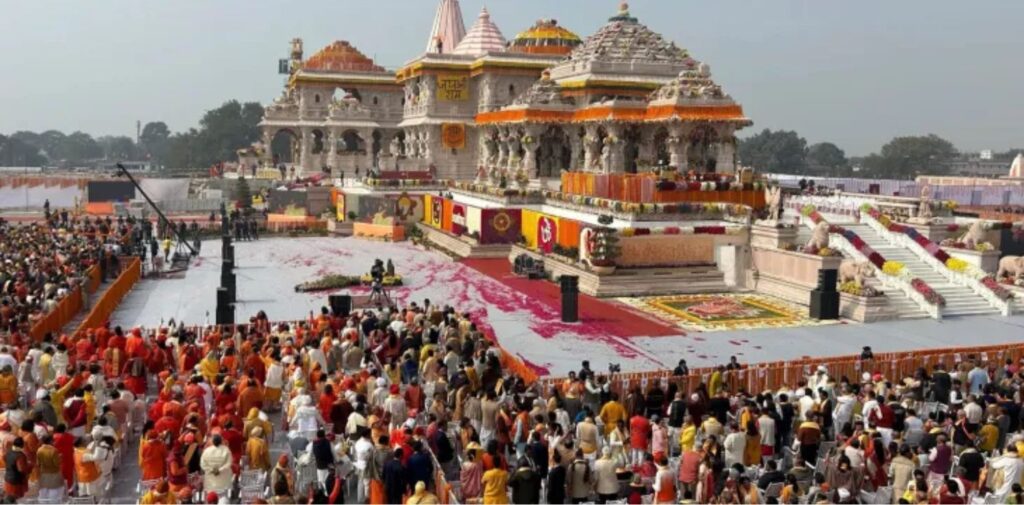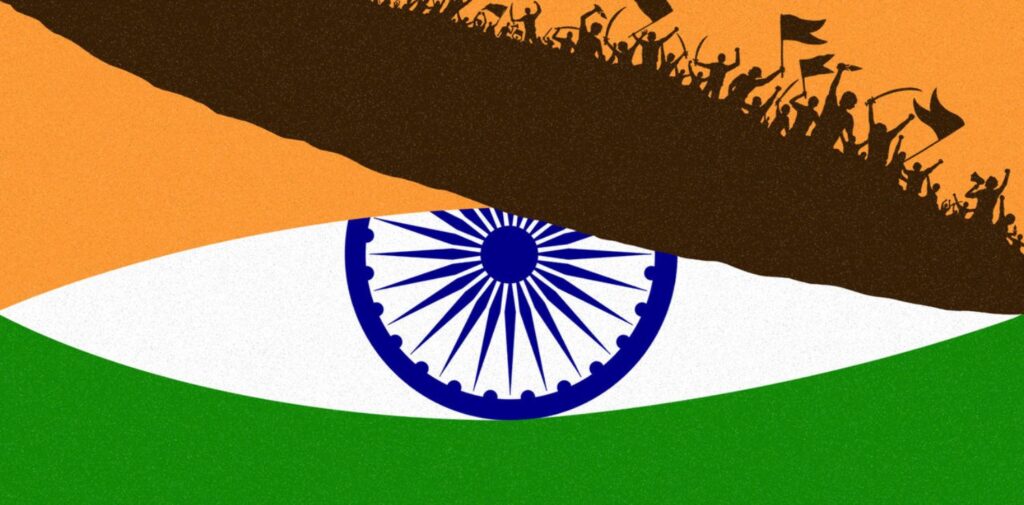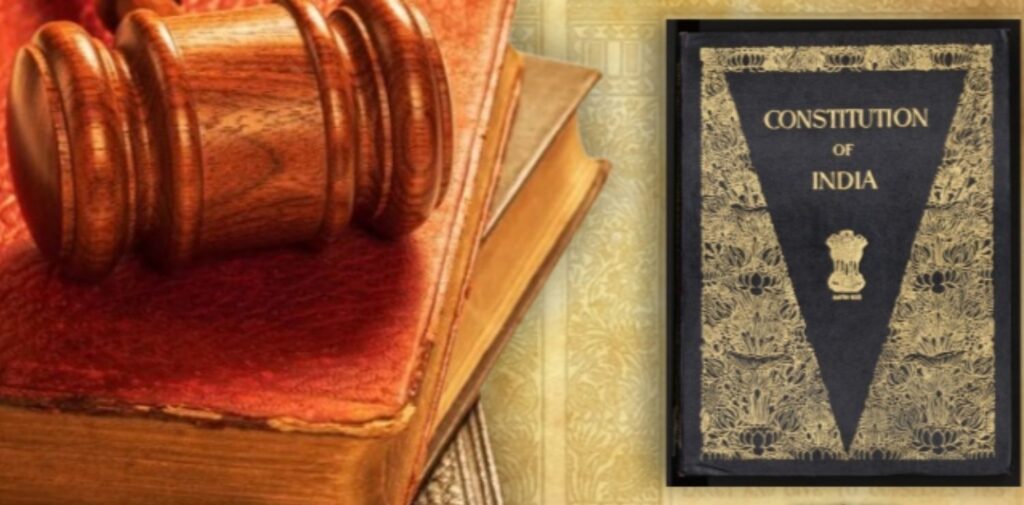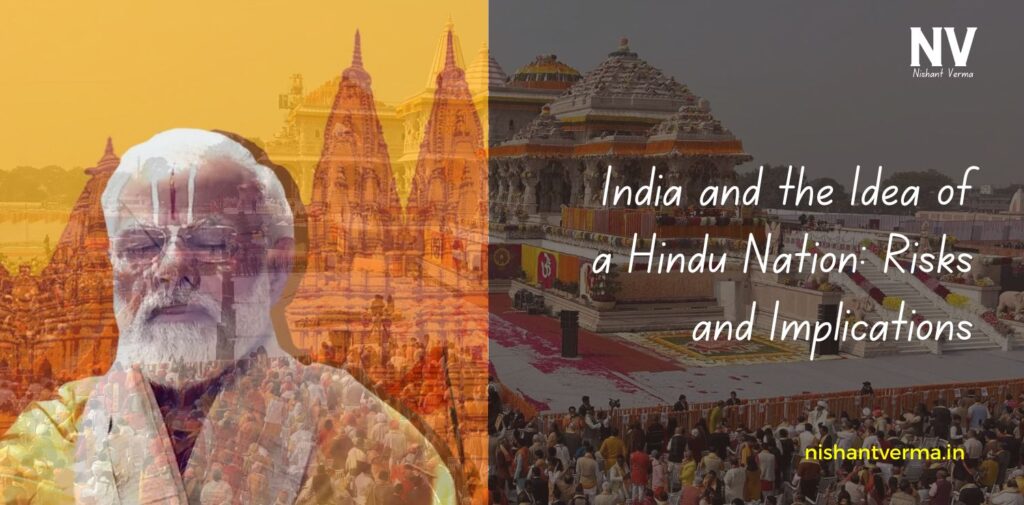India, a country known for its incredible diversity, is often described as a land of different cultures, religions, languages, and traditions. However, in recent years, a growing debate has emerged around the idea of India as a Hindu nation. This idea is based on the belief that India’s identity, culture, and values are inherently tied to Hinduism, the religion followed by the majority of its population.
The question of whether India should be considered a Hindu nation and the risks associated with this shift have become key points of discussion among politicians, academics, and citizens alike. In this article, we will explore who has promoted the idea of India as a Hindu nation, what it means, and the potential risks associated with such a vision for India’s future.
Who Said India Is a Hindu Nation?
The concept of India as a “Hindu nation” is largely associated with the ideology of Hindutva, a political and cultural ideology that promotes Hindu nationalism. The term “Hindutva” was first coined by Vinayak Damodar Savarkar in his 1923 pamphlet Hindutva: Who is a Hindu? Savarkar argued that India should be considered a Hindu nation because the land, culture, and identity were intrinsically linked to Hinduism. According to Savarkar, anyone who shares this cultural and civilizational identity, regardless of their religion, could be considered a “true” Indian. This ideology challenges the inclusive vision of India’s founding fathers, particularly Jawaharlal Nehru and Mahatma Gandhi, who emphasized India as a secular state with equal respect for all religions.
Over the years, Hindutva has been adopted and promoted by organizations such as the Rashtriya Swayamsevak Sangh (RSS), the Bharatiya Janata Party (BJP), and other right-wing groups. The RSS, in particular, has been one of the key players in spreading the idea of India as a Hindu nation. It has been argued that India’s true essence lies in its Hindu heritage and that the country’s future should be shaped by Hindu values. The RSS and BJP, which have been in power in India for several years, have increasingly voiced support for this vision of India as a Hindu nation.

What Does It Mean for India to Be a Hindu Nation?
The idea of India as a Hindu nation has several implications. First and foremost, it suggests that the culture, politics, and identity of India should be shaped by Hinduism. This could mean prioritizing Hindu values in education, governance, and law. Some proponents of Hindutva argue that India should not just be a country where Hindus live in large numbers, but a nation where Hindu culture is celebrated and preserved above all others.
A “Hindu nation” may also imply that policies should reflect Hindu religious practices and values. For example, public holidays could be more focused on Hindu festivals, and laws could be influenced by Hindu religious teachings. It could also mean that non-Hindu communities, especially Muslims and Christians, might find themselves marginalized or pressured to adopt Hindu cultural practices.
Another aspect of this idea is the belief that India’s history should be rewritten to highlight its Hindu legacy. Supporters of the Hindu nation theory often criticize the portrayal of Indian history that acknowledges the contributions of other religious communities, including Muslims and Christians. They argue that India’s pre-colonial and colonial past should focus more on Hindu kings, dynasties, and achievements, rather than recognizing the role of other religious communities in shaping the nation.

The Risk of India Turning into a Hindu Nation
While the idea of a Hindu nation resonates with a significant portion of India’s population, especially within certain political circles, there are considerable risks associated with turning India into a Hindu-only nation. Here are some of the major concerns:
Marginalization of Religious Minorities
India is home to a large and diverse population, including millions of Muslims, Christians, Sikhs, Buddhists, and other religious communities. These groups have been integral to the country’s history and development. The risk of turning India into a Hindu nation is that religious minorities could be marginalized, both politically and socially.
For example, Muslims, who make up around 14% of India’s population, may find themselves alienated in a society that emphasizes Hindu religious and cultural norms. In recent years, there have been incidents of religious intolerance, such as attacks on Muslims and Christians, and calls for laws that discriminate against these communities (e.g., the Citizenship Amendment Act or CAA, which critics argue discriminates against Muslim refugees).
Sikh, Christian, and Muslim communities have historically contributed to India’s growth, both in terms of culture and politics. A shift toward Hindu nationalism could risk eroding their status as equal citizens in a country that prides itself on its secularism.
Undermining Secularism and Constitutional Values
The Indian Constitution, adopted in 1950, envisions India as a secular state, where the government does not favor any religion over others. This secular framework has been central to India’s unity and identity as a diverse nation. If India were to officially become a Hindu nation, it would mean abandoning the secular principles enshrined in the Constitution.
Such a shift would likely erode the fundamental rights and freedoms of citizens, especially those from minority religious backgrounds. The freedom to practice one’s religion, a core principle in The Indian Constitution, could be undermined, leading to possible legal and social restrictions on non-Hindu groups. This would violate the constitutional guarantee of equal treatment for all citizens, regardless of their religion, and could create a more divided and less tolerant society.
Social Division and Polarization
The vision of India as a Hindu nation has the potential to deepen social divides and fuel religious polarization. India’s diverse communities have coexisted peacefully for centuries, but the growing emphasis on Hindu nationalism in recent years has led to increasing tensions between Hindus and religious minorities. Issues like the construction of the Ram Mandir in Ayodhya debates over cow slaughter, and the citizenship law have created friction between different groups in society.
By promoting Hindu nationalism at the state level, there is a risk of alienating minorities and increasing animosity between religious communities. This could lead to social unrest, violence, and a breakdown of the unity that India has historically enjoyed.

Risk to Cultural Pluralism
India’s strength lies in its cultural pluralism—the coexistence of multiple languages, traditions, and religious practices. India’s cultural richness comes from the blending of Hindu, Muslim, Christian, Sikh, Buddhist, and other traditions. The promotion of a singular Hindu identity may threaten this pluralism, making non-Hindu cultural practices less visible and less accepted in the public sphere.
If India were to embrace a Hindu-only identity, it might undermine the diverse traditions that define the country. Non-Hindu festivals, languages, and practices might be sidelined or even excluded from the mainstream, leading to the erosion of the country’s diverse cultural fabric.
Potential for Authoritarianism
A move toward a Hindu nation could also pave the way for authoritarian rule. History shows that when a country shifts towards the dominance of one religious or cultural group, it often leads to the suppression of dissent and the concentration of power in the hands of a few. In India, the rise of Hindu nationalism has been associated with a more centralized, majoritarian approach to governance, where decisions are made in the interest of the dominant group, often at the expense of others.
This could lead to the weakening of democratic institutions and a curtailing of freedom of expression, assembly, and press. In such a scenario, the rights of minorities and dissenting voices would likely be threatened, leading to a more authoritarian political environment.
Conclusion: India as a Hindu nation
The idea of India as a Hindu nation is a complex and controversial topic, with both passionate support and strong opposition. While proponents of Hindutva argue that India’s identity should be rooted in Hindu values, critics warn that such a vision could undermine the secular, democratic principles on which India was founded. The risks associated with India turning into a Hindu nation are significant—religious minorities could be marginalized, secularism could be eroded, and social division could deepen.
India’s strength lies in its diversity, and its Constitution guarantees equal rights and opportunities for all citizens, regardless of their religion. India needs to continue nurturing an inclusive and pluralistic society where every citizen feels valued and respected, regardless of their religious or cultural background. The future of India as a nation depends on preserving its unity in diversity, a principle that has allowed it to thrive for over seven decades since independence.




